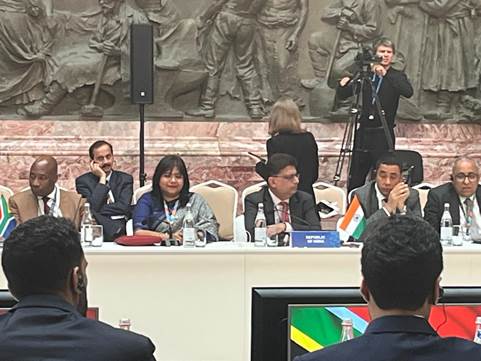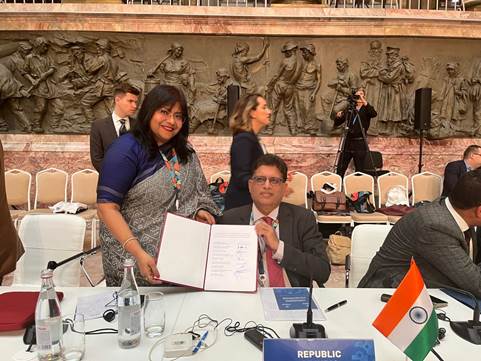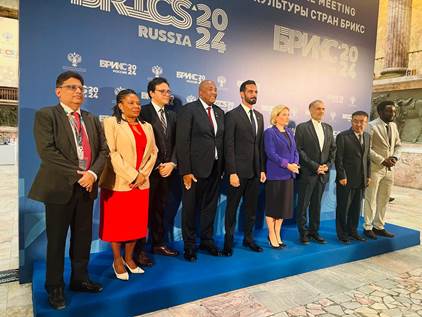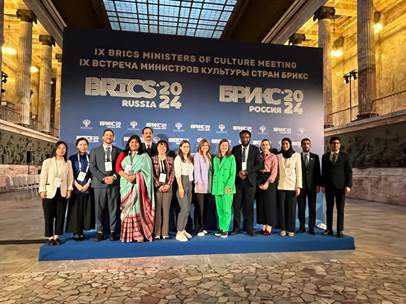At the 9th BRICS Culture Ministers’ Meeting in St. Petersburg, Russia, the Secretary, Ministry of Culture, Govt of India, Shri Arunish Chawla emphasised the need to place culture at the heart of global development strategies, to use it as a tool for empowerment, inclusion, and mutual understanding.
In his statement the Secretary reiterated India’s commitment to harnessing the power of culture for sustainable development and global cooperation. This aligns with Prime Minister Narendra Modi’s vision of convergence between Culture Creativity, Commerce and Collaboration for building an equal, sustainable and inclusive world.


Continuing with India’s stance at G20 during India’s presidency in 2023, India advocated for recognizing culture as a standalone goal in the post-2030 global development agenda, highlighting its transformative potential in driving economic growth, social inclusion, and sustainable development. This in sync with India’s own cultural renaissance efforts, aimed at preserving and promoting its rich cultural heritage while fostering innovation and creativity.

India also stressed the importance of creative industries, innovation, and job creation, emphasizing the need for BRICS nations to leverage their collective cultural strengths to drive economic growth and social development. The promotion of people-to-people exchanges, grassroots cultural diplomacy, and education were also highlighted as key areas of focus for India’s cultural cooperation agenda.
The 4-member Indian delegation for BRICS Culture Ministers meeting and International United Cultures Forum was led by Secretary Ministry of Culture Arunish Chawla and included Joint Secretary Lily Pandeya, Yashveer Singh Director and Shah Faesal Deputy Secretary Ministry of Culture.

By prioritizing culture, India aims to strengthen BRICS nations’ collective response to global challenges, promote mutual understanding and respect, and create a more inclusive and culturally resonant global community. This vision is in line with the BRICS spirit of cooperation and mutual support, and India’s leadership in cultural diplomacy is expected to play a significant role in shaping the grouping’s cultural agenda in the years to come.
 Matribhumi Samachar English
Matribhumi Samachar English


